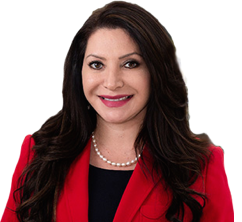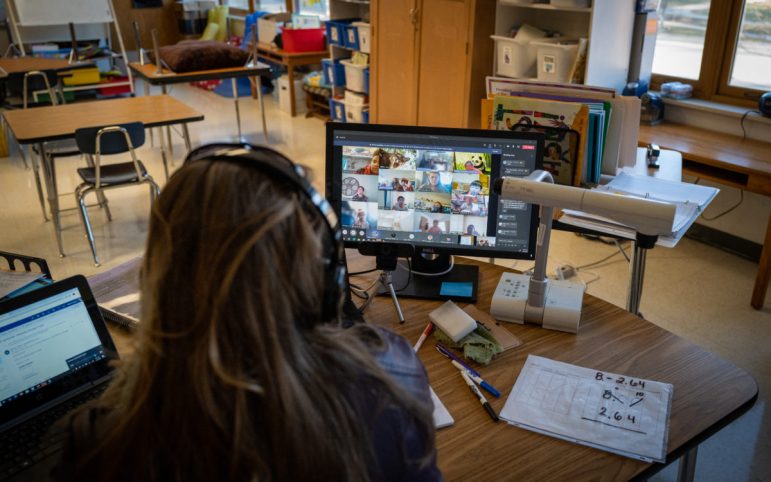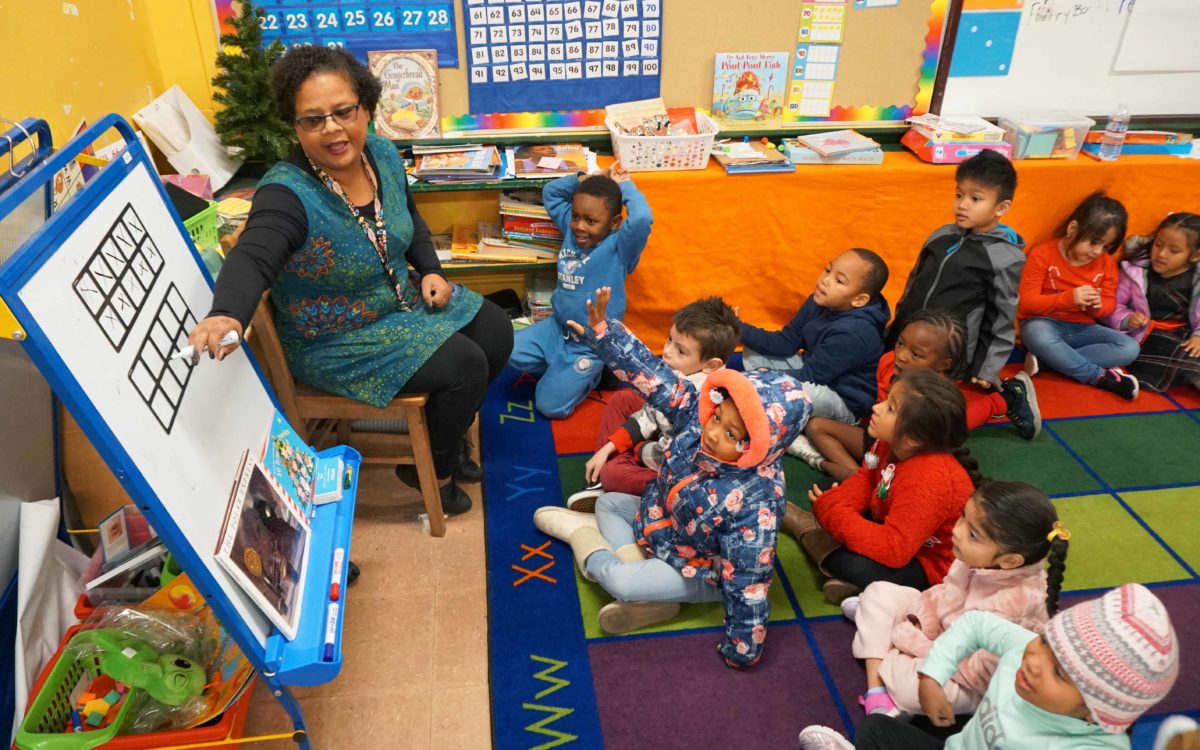Two newly introduced bills could significantly impact the early education landscape in California if they eventually become law.
State Sen. Susan Rubio, D-Baldwin Park, is championing a bill to make kindergarten mandatory while Assemblymember Kevin McCarty, D-Sacramento, has introduced legislation that would require school districts to offer full-day kindergarten. While both proposals have been put forth before, if these two pieces of legislation pass, they would fundamentally redefine and expand key aspects of the kindergarten experience.

These proposals may be a sign of the times, some say, reflecting heightened attention to the importance of early childhood education. After years of being overshadowed by other concerns, early childhood issues might finally be getting the attention they deserve.
From President Joe Biden’s vision of universal preschool to California’s pending expansion of transitional kindergarten, experts say, there is an emerging consensus, buttressed by extensive research, that high-quality early education can help develop the skills children need to become lifelong learners.
“I’m optimistic that our society as a whole is beginning to see the importance of early childhood education,” said Gennie Gorback, president of the California Kindergarten Association. “We know that early childhood education increases successful outcomes for kids later in life.”
Making kindergarten mandatory will help close the state’s achievement gap, advocates say, because some children who skip kindergarten have a hard time catching up with their peers. Children from low-income families enter school with fewer academic skills than their more advantaged classmates, an issue heightened by the pandemic.
“Mandating kindergarten is beneficial to children in our state,” said Patricia Lozano, executive director of Early Edge, an early education advocacy organization. “Through this mandate, California is saying that kindergarten matters. It sets an expectation for parents and students alike and prepares students for school success.”
The vast gulf in skills that students bring with them when entering school is one of the key factors that struck Rubio in her 17 years as a public school teacher and principal.
Some children come to school already knowing how to read while others have scarcely been read to. That gap widens over time, Rubio realized.
“I have witnessed the detrimental impact on young students who miss out on fundamental early education,” said Rubio, who introduced the bill. “The voluntary participation in kindergarten leaves students unprepared for the educational environment they will encounter in elementary school. The pandemic has exacerbated this reality.”
Kindergarten is not compulsory in California and most other states, according to the Education Commission of the States, a research group that tracks education policy. Children are required to be enrolled in school at age 6, however only an estimated 5% to 7% of students do not enroll in kindergarten, according to the California Kindergarten Association, in an average year.

The pandemic, of course, is a different matter entirely, and many parents have kept children of all ages out of school because of fear of COVID transmission. Even now, surges in the virus sometimes lead parents to choose safety over schooling.
Senate Bill 70, which would require all students to complete a year in kindergarten before entering first grade to ensure children are prepared for elementary school, now heads to the state Assembly after passing in the Senate in a bipartisan vote.
It should be noted that a similar mandatory kindergarten bill passed the Legislature in 2014, but it was vetoed by Gov. Jerry Brown, who invoked the importance of parental choice.
“I would prefer to let parents determine what is best for their children,” he said.
However, making kindergarten mandatory may be a way of signaling its significance, some say.
“If a grade isn’t mandatory, it’s seen as discretionary, and absences are higher,” said Beth Graue, director of the Center for Research on Early Childhood Education at the University of Wisconsin. “It is hard to build a coherent curriculum if the experiences include children missing a grade level.”
One central issue may be that kindergarten itself has changed over the years. While many parents may fondly remember the playful days of finger painting and naptime, research suggests children spend a smaller percentage of their day on activities like art, music and theater now than they once did. Kindergarten is now vital to prepare children for first grade, teachers say, which is more academically rigorous than it once was.
Another potential change in the state’s kindergarten policy would be mandating that districts offer a full-day program. Proponents of the bill say more instruction time helps prepare students for first grade. Currently, some districts offer only part-day kindergarten.
“Full-day kindergarten gives students the time they need to engage in meaningful learning and play,” McCarty said. “This can result in greater school readiness, self-confidence and student achievement compared to part-day programs.”
Under Assembly Bill 1973, school districts would be required to offer full-day kindergarten programs to all students, starting in the 2025-26 school year. Schools would be able to offer part-day kindergarten in addition to the full-day program.
“We see study after study reporting better outcomes for children who attend a full-day program versus their peers who attend part-day,” said Gorback. “We know that full-day programs are beneficial for our English language learners and our children who come from lower socio-economic backgrounds. We also know that full-day programs have more time to incorporate play into their schedule, which we see as incredibly important.”
The concept of full-day kindergarten has also been broached before, notably in 2019 when Assemblymember Shirley Weber, D-San Diego, introduced Assembly Bill 197.
However, part-time kindergarten is preferred by some families, particularly those who believe a shorter school day is more developmentally appropriate for young children. That’s one reason districts serving middle-class and affluent communities tend to offer part-day kindergarten, research shows, while poorer districts often offer full-day programs.
Nearly three-fourths of the state’s elementary schools already offer full-day kindergarten, according to the Berkeley Early Childhood Think Tank.
Since child care is often prohibitively expensive, only well-heeled families can afford to hire nannies, for instance, or arrange for a stay-at-home parent. That’s why some experts say that expanding full-day kindergarten programs is unlikely to greatly impact low-income families.
“The governor and state lawmakers keep trumpeting the vital importance of narrowing disparities in early learning. But expanding full-day K would likely work against this virtuous aim,” said Bruce Fuller, professor of education and public policy at UC Berkeley. “Expanding full-day K would hold regressive effects, mostly benefiting economically better-off communities.”
